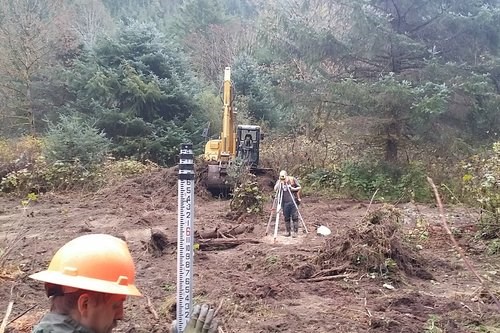The British Columbia Conservation Foundation is getting $85,000 from the federal government’s EcoAction Community Funding Program to restore wetland and shoreline habitat in the area destroyed by the Old Sechelt Mine wildfire in 2015.
The project was one of 53 announced Nov. 12 by Minister of Environment and Climate Change Jonathan Wilkinson.
Dr. Michelle Evelyn, part of the Sunshine Coast Wildlife Project, will lead the initiative on behalf of the Conservation Foundation. The project, which is also getting additional matched contributions, will be carried out in partnership with the shíshálh Nation.
The money will be used to hire a field team including a biologist and an excavator to dig the new wetlands and plant native vegetation like reeds, rushes, willows, and shrubs.
“Over the past few years have been working to restore degraded and damaged ecosystems on the Sunshine Coast,” Evelyn said during the online announcement.
“Our project will nurture the next generation of environmental leaders by enabling young people to participate in a real and meaningful way… Our biologists will also mentor university students who will work with us on scientific studies to see how the new wetlands are doing, which animals are using them, how the plants are growing and water quality characteristics.”
West Vancouver-Sunshine Coast-Sea to Sky Country MP Patrick Weiler called the Sechelt project a “perfect example” of a co-operative and collective solution to the challenges facing sensitive ecosystems and biodiversity in B.C.
“This project will both increase the knowledge base of our environment, as well as directly restore wetland and coastal environments, which are some of the most ecologically important areas there are,” he said.
“This initiative will also create good green jobs for our scientists and construction workers and allow existing leaders in conservation and stewardship, which the Sunshine Coast has in spades, to inspire the next generation of leaders.”
Weiler said the partnership with the shíshálh Nation will enable them, as traditional stewards of the land, “to more widely share the history and traditional knowledge” of the area.
There was no timeline given for the start of the work.



